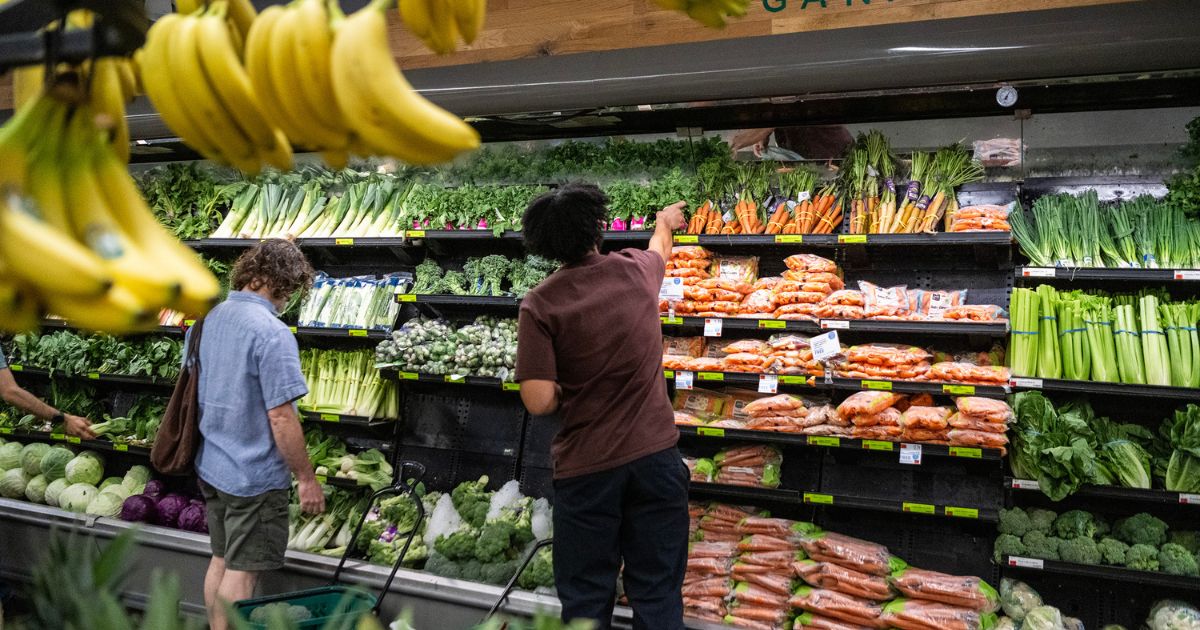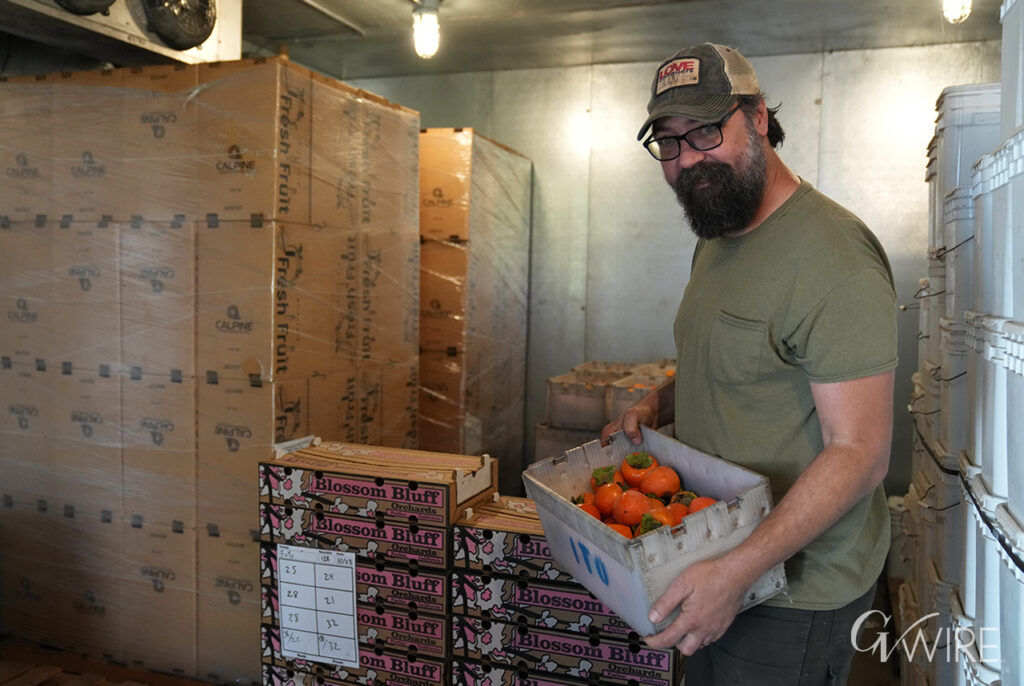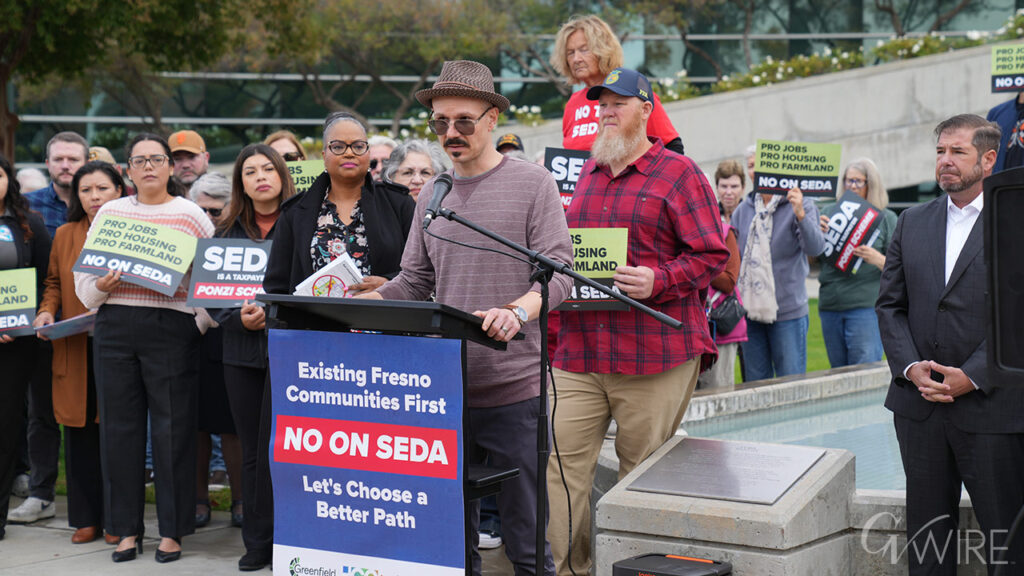Customers shop for groceries at Whole Foods in Harlem on May 31, 2024. Congress is feuding over a new farm bill, making lawmakers likely to punt the matter for another year and leave American farmers and families on food assistance without an update to the legislation that controls how much federal support they receive. (Brittainy Newman/The New York Times)

- Congress is struggling to pass a new farm bill due to a dispute over funding, with Republicans wanting cuts to food assistance for the poor.
- Senators and representatives blame each other for delaying progress, with Republicans accusing Democrats of holding up negotiations after the election.
- Agriculture groups warn that delays in passing the bill could harm farmers, who rely on timely subsidies and programs.
Share
|
Getting your Trinity Audio player ready...
|
WASHINGTON — Congress is feuding over a new farm bill, making lawmakers likely to punt the matter for another year and leave American farmers and families on food assistance without an update to the legislation that controls how much federal support they receive.
Republicans and Democrats agree it is time for an updated bill. The last one was written in 2018 and expired two years ago, meaning American farmers are trying to run their businesses based on 6-year-old policy.
But the two parties cannot get past a core dispute over how to pay for it. Republicans want to cut nutrition assistance for the poor to pay for bolstered financial support for farmers, while Democrats refuse to reduce food support for low-income people. The disagreement is likely to only deepen next year, with President-elect Donald Trump in the White House and Republicans in total control of Congress.
“A lot has changed in our world since 2018 and the last farm bill,” said Robert Guenther, a former House Agriculture Committee aide and an agriculture policy expert who represents tomato growers in Florida. “We’re kind of stuck in limbo with old policy that needs to be modernized and reinvigorated.”
Congress Ag Committee Chair to Retire
Underneath the policy fight also lies a political subplot. Sen. Debbie Stabenow, D-Mich., the chair of the Agriculture Committee who has been her party’s leading voice on the issue for more than a decade, will retire in January.
With her legacy on the line, Stabenow has refused to sign off on any deal that involves taking money from the main federal food support mechanism for the poor, the Supplemental Nutrition Assistance Program, or SNAP, even as she concedes that Republicans are likely to force through such a change once she is gone.
“I’m not going to do it just so they don’t; I am going to continue to do what I think is right,” Stabenow told reporters last week, speaking about Republicans. “They’re not doing it on my watch. They will be responsible for it if they do it.”
As the dispute drags on, Rep. Glenn Thompson, R-Pa., the chair of the House Agriculture Committee, is preparing to introduce a simple one-year extension of the existing bill that would not update subsidies or food support, effectively postponing the fight.
He conceded that failing to overhaul farm policy in the waning days of the current Congress could have harmful consequences for farmers, given that they would have to compete for time and resources next year with all the legislative priorities of the Trump administration.
“There’s going to be a lot of competition,” Thompson said, adding that it would be “a service for President Trump” to get a “good, conservative farm bill done now.”
Congress Typically Passes This Every Five Years
The bill, a package of several hundred pages that Congress typically passes every five years, provides a federal safety net to farmers affected by unexpected weather or tariffs and to low-income Americans struggling to feed themselves and their families. The measure often requires lengthy bipartisan negotiations between House and Senate Agriculture Committee leaders to get over the finish line.
This year, though, with a presidential election hanging over everything and the two parties dug into their positions, compromise was impossible. Republicans and Democrats blame each other for stalling progress, and Republicans fault Stabenow and her staff in particular for holding up the negotiations by waiting until after the election to officially release their proposal. Democrats, on the other hand, say Republicans are negotiating in bad faith and moving the goalposts.
Since farm bill talks began two years ago, Republicans have repeatedly said they want to “put more farm in the farm bill” by funneling more dollars into price supports and crop insurance. About 80% of farm bill spending goes toward SNAP, which helps feed more than 42 million Americans. That proportion has grown significantly since a nutrition title was first added to the farm bill in 1973.
“It’s all being centered around nutrition,” said Sen. John Boozman, R-Ark., the ranking member of the Agriculture Committee. “Surely, we can find a few dollars for farmers.”
Agriculture lobbying groups are sounding the alarm as well, saying their producers cannot wait for an update to the programs they rely on.
“Wheat growers need a long-term farm bill passed before the end of this year, period,” Chandler Goule, the CEO of the National Association of Wheat Growers, said in a statement provided by a spokesperson. “The 119th Congress will have a busy schedule at the start of 2025, and the farmers can’t afford for the farm bill process to be dragged out even longer.”
—
This article originally appeared in The New York Times.
By Maya C. Miller/Brittainy Newman
c. 2024 The New York Times Company




















